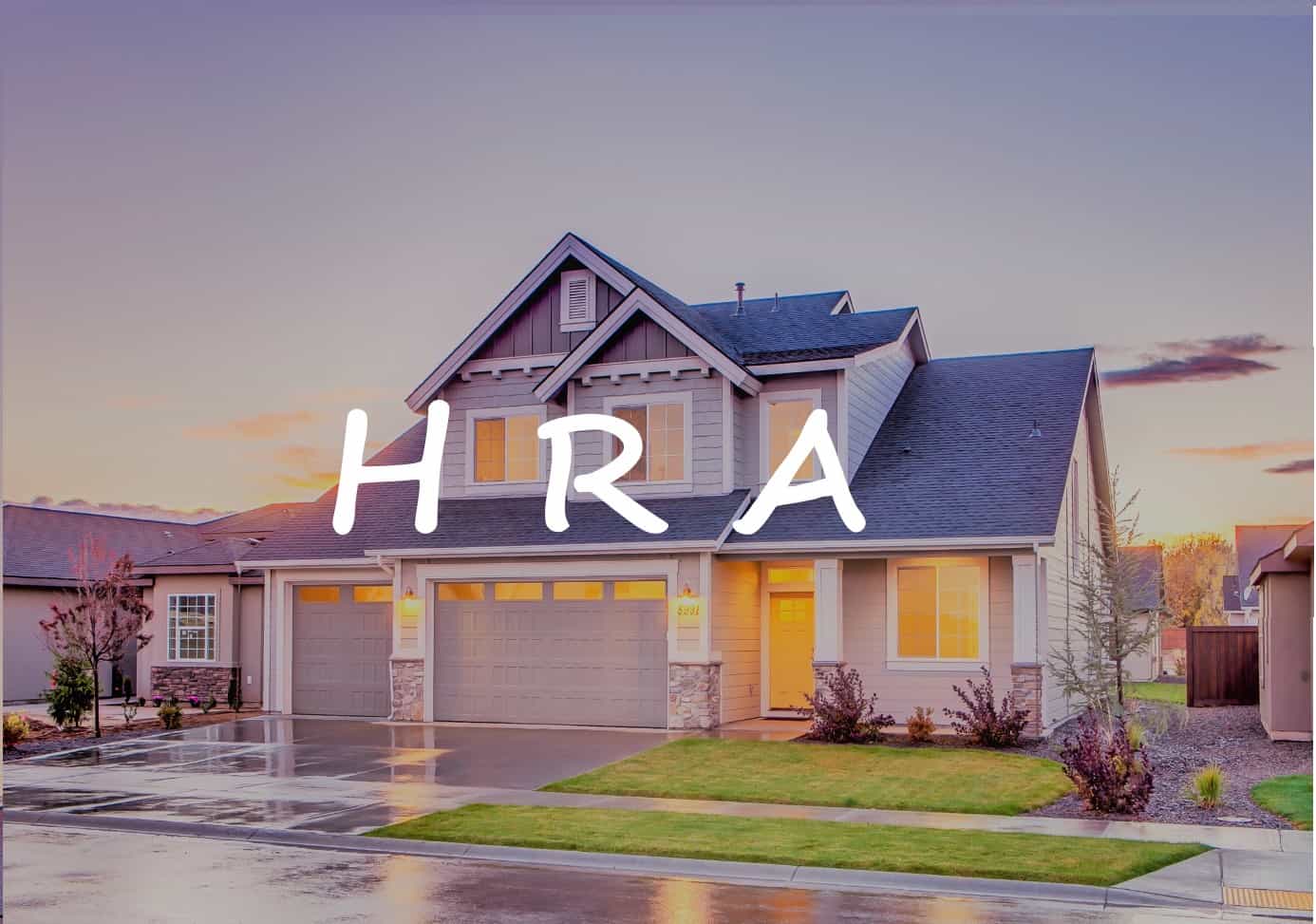Many employees face a dilemma whether they can claim House Rent Allowance (HRA) exemption and thus whether they should ask their employer to add HRA component in their salary structure, in cases where employees are living with their parents.
HRA is an exemption allowed to an employee who lives in a rented house, while computing their salary income under the Income tax Act, 1961 (the Act). Eligible amount of exemption is to be determined as per the provisions of section 10(13A) of the Act and Rule 2A of the Income-tax Rules, 1962 (the Rules). Leaving aside the computation mechanism, the following are prerequisites for claiming HRA exemption:
- Employee should have actually paid RENT
- Rent should be for residential accommodation OCCUPIED by the employee
- HRA should form part of the SALARY structure
Accordingly, if an employee received HRA as part of his salary and lives in a house which is taken on rent by him (i.e. he pays the rent), there is no doubt that he is eligible for HRA exemption computed as per section 10(13A) r.w. Rule 2A. However, this differs in cases wherein employees live in a house which is either owned or taken on by their Parents.
Employees living in house owned by Parents
Employees living in a house owned by their parents are per se not eligible for any exemption with respect to HRA, as they do not pay any RENT.
However, in case an employee pays rent to his parents, he should be eligible to claim HRA exemption. This is because he pays RENT for residential accommodation OCCUPIED by him. But the Revenue / income tax officer can question the genuineness / bonafides of the transaction (renting) and may consider the HRA exemption claim to be bogus. There can be two scenarios in the above case:
(I) Employee pays rent to his parent to support them for the cost of house. For example – where parents have taken a loan for buying the house and are paying regular EMI / interest, parents need money to do some renovation or work in house, etc.
Such cases show a genuine need / rationale for payment of rent by the son / daughter (employee) to his / her parents i.e. to support parents financially or share the financial burden of buying, owning and maintaining a house for the family. With such an objective, income tax officer’s contention of ingenuine arrangement weakens.
This is supported by the recent Tribunal decision of Mumbai Bench in the case of Md. Hussain Habib Pathan v. ACIT [ITA No. 4058/Mum/2013] dated 05/03/2020. In that case, assessee had claimed interest deduction of Rs.21.62 lakhs (arising on account of capital borrowed for purchase of house property) against rental income of Rs.9 lakhs. On enquiry by the Assessing Officer, it was found that the rental income received by the assessee was from his major son and daughter. He thus held the rental arrangement to be sham and allowed interest claim of Rs.1.5 lakhs i.e. only to the extent allowed in case of Self Occupied Property (SOP).
Tribunal noted that the Assessing Officer had not done any enquiry such as whether the arrangement existed in earlier years and subsequent years also, what was the area used by children, etc. Rather, the Assessing Officer only doubted genuineness of the arrangement. At the outset, it was held that the arrangement was highly unusual considering that the rent was in respect of a self-owned property (for which no rent was paid), which constituted the family’s residence and that the assessee’s son and daughter were unmarried. However, the Tribunal declared the arrangement to be genuine by holding as under:
“the assessee’s major son and daughter are financially independent (or substantially so), with independent incomes, sharing the interest burden of their common residence with their father. And, as such, instead of transfer of funds to him per se, have regarded, by mutual agreements, the same as rent, as that would, apart from meeting the interest burden to that extent, also allow tax saving to the assessee-father. A genuine arrangement cannot be disregarded as the same results or operates to minimize the assessee’s tax liability. Reference in this regard may be made to the decision in Union of India v. Azadi Bachavo Andolan [2003] 263 ITR 706 (SC) and, more recently, in Vodafone International Holdings B.V. v. Union of India [2012] 314 ITR 1 (SC). We are, accordingly, in principle, in agreement with the assessee’s claim inasmuch as, as afore-noted, there is nothing on record to further the Revenue’s case of the arrangement being not a genuine arrangement, i.e., apart from being unusual.”
Accordingly, an employee can enter into a rent agreement with his parent while he lives in the house owned by his parents and claim HRA for rent paid thereto in above situation.
(II) Employee pays rent to his parent without an objective of supporting the parents for the cost of house.
As stated above, there is no bar in claiming HRA exemption till the time an employee pays RENT for a residential accommodation OCCUPIED but not owned by him. This is supported by the decision of the Ahmedabad ITAT bench in the case of Bajrang Prasad Ramdharani v. ACIT [ITA No. 715/Ahd/2013] dated 12/07/2013, wherein ITAT allowed the HRA exemption claim by the taxpayer (employee), even though rent was paid by him to his spouse. Employee was living with his wife but had paid her rent through bank transfers. The Tribunal held that the employee had fulfilled the twin requirement of OCCUPYING a house not owned by him and payment of RENT.
However, in such case, employee’s case is comparatively weaker, for the purpose of justifying genuineness of the arrangement, and income tax officer may question the same.
Employees living in house taken on rent by Parents
Where an employee lives in a house property taken on rent by his parents i.e. parents have entered into an agreement with house owner / landlord, employee cannot claim HRA exemption. This is because he is not responsible for payment of rent but his parent.
If we consider a situation wherein such an employee pays rent to his parent, it would lead to sub-letting the property. Whereas, most of the rent agreements / lease agreements in India have a clause which bar / do not allow tenants to sublet the property to a third person. Further, even if the agreement is silent on subletting, the same is illegal. The Supreme Court in the case of Celina Coelho Pereira Vs. Ulhas Mahabaleshwar Kholkar [AIR 2010 SC 603; Civil Appeal No. 7258 of 2009] as well as several other judgements has held that subletting a property without the consent of landlord / owner is illegal and the tenant can be evicted for the same.
In a situation where the property is sublet with the consent of the landlord or the rent agreement itself specifically allows subletting, employee may take the benefit of above referred cases and claim HRA exemption.
Points to be noted –
- Parent who receives the rent will have to show rental income while filing his income tax return and discharge tax liability, if any. Accordingly, it is advisable to analyse the net gain to family before entering into a rent agreement with the parents. As otherwise it can lead to a situation wherein instead of financially supporting the parent, the employee lands up having higher cash outflow (in form of tax) for the family as whole.
- Documentation is a must and must. Employees need to maintain all the required document for a rental arrangement starting with atleast – Rent agreement on stamp paper, rent receipts and proof of actual payment (say bank statement). Additionally, you may also keep evidence of payment of expenses such as repairs, property tax, etc. The Mumbai Tribunal in the case of Meena Vaswani v. ACIT [ITA No. 1983, 1984 & 1985/Mum/2015] dated 30/03/2017 had disallowed assessee’s (employee) claim for HRA exemption with respect to rent paid to her mother in cash, irrespective of her contention that she lived with her aging mother to take care of her. Tribunal held the arrangement to be sham, noting that – (i) though assessee had produced rent receipts, she could not prove cash withdrawals from her bank to substantiate the rental payments; (ii) She had not entered into a formal agreement with her mother for rental arrangement and (iii) income-tax department had also made a case to show that she actually lived in a nearby house with her husband and daughter and not with her mother.
- As stated above, HRA component should form part of salary structure of the employee. Also, give details of your rental arrangement to your employer.
- For the computing the HRA amount eligible to be claimed as exemption, click here.




